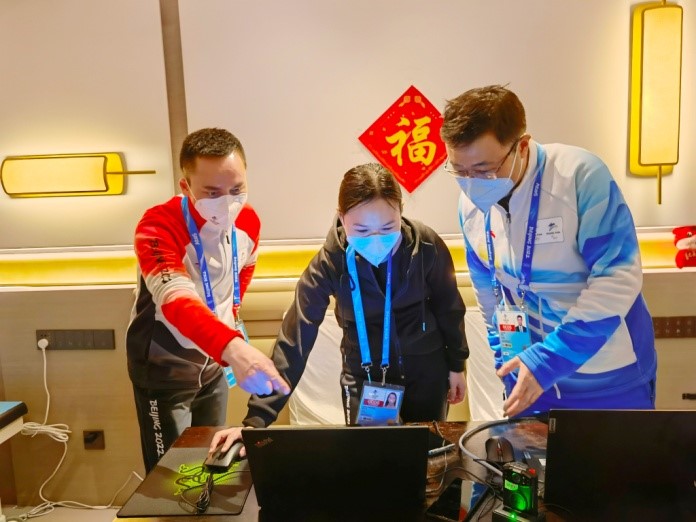It was February 2, 2022.
The calm and quiet after lunch was cut short by the knocking in quick succession. “Emergency! Urgent! Medical team needed!”I picked up these ominous words inside and rushed out immediately. Just then our office phone also rang, and Medical Officer Chen Gang hurriedly said: “Bai, emergency in the reception room. Go there now! I am on my way too.”
The first-aid scene that I had practiced many times for in the training became a reality. Even though I had rehearsed for it over and over in training and had replayed it repeatedly in my head, I still felt the adrenaline rush. As I rushed to the reception room, many people were already there and Danping already completed the initial evaluation of the patient and quickly measured the vital signs: “Clear consciousness, blood pressure 160/100mmHg, both heart rate and oxygen saturation level are normal.”
After a brief inquiry, we learned that the elderly patient had chest pain the night before, and the chest pain recurred and did not ease at noon today. With unknown medical history, suspected diabetes mellitus and unclear baseline blood pressure, we re-measured his blood pressure, which was basically the same as before, but the elderly man seemed very weak and uncomfortable.
Chen Gang quickly asked the patient some general questions. From the limited information gathered, we highly suspected that it was a heart problem. Then results of the ECG came out. Fortunately, there were no ST-segment elevation or depression that suggested acute myocardial infarction. However, a Q wave could be seen in some leads, which seemed to indicate the possibility of previous cardiac ischemia.
Watching us cope with the situation in an orderly manner, the international friends present were all somewhat relieved, and some of them gave us a thumbs up. Just then, the elderly man patted his chest lightly and signaled to us that he wanted to vomit. Chen Gang and Danping immediately took out the spare yellow garbage bag from the ambulance! The moment we approached the sofa and unfolded it, the elderly man, no longer able to suppress his gastrointestinal reaction, vomited.
After vomiting, and with oxygen inhalation and drug treatment, the elderly man’s discomfort was relieved. “I feel much better. Thank you,” the old man said weakly.
“The 120 transfer team will be here soon. Although you feel better now, we still hope to send you to the hospital for further evaluation and treatment.” Chen Gang said while gently patting the patient’s back.
A few minutes later, our colleagues in the 120 transfer team arrived; the elderly man was put on a stretcher and transported to the PUMCH Winter Olympic Ward in less than one hour. In the ward, doctors from multiple departments worked together closely and the patient’s condition was brought under control, and the patient returned to his place of residence the next day after his condition became stable. The rescue was well-received among the international friends, many of whom sent text messages of thanks to us.
I think, as every colleague providing medical services for the Winter Olympics does, our daily work is ordinary and even trivial. However, when the need arises, the sparks from each of us can converge and form a dazzling light that, like the Olympic torch being passed on, is bright enough to illuminate everyone in need. I guess that is the charm of the Olympic spirit.

Doctors and nurse working at the medical service station: Chen Gang, Song Danping and Bai Wei (left to right)
Written by and picture courtesy of Bai Wei from the Department of Rheumatology
Translator: Liu Haiyan
Editor: Wang Yao
